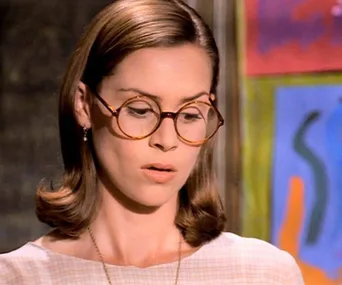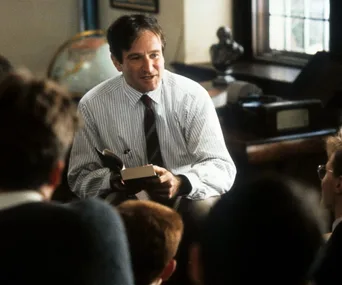Sarah Donnelley, 31, from Wilcannia, NSW, shares her story with Take 5’s Mitchell Jordan:
As I drove home one evening, I noticed some young students standing by the road.
Pulling over to talk to them, I could see they were sweating, which wasn’t surprising given the 40-degree heat.
“Miss, do you have any water?” one boy asked.
“We don’t have any boxed water at home,” another explained.
My heart sank hearing this.
“Let me check,” I told them.
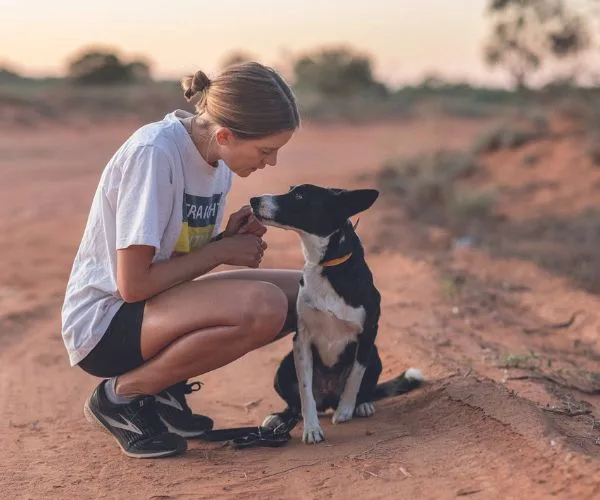
Sarah with her dog (Photo by Gerrit Fokkema)
In Wilcannia, where I lived and worked as a primary school teacher, there was a drought.
A health warning had been issued, meaning you couldn’t drink the town water, which was filled with so much chlorine you could feel dry from having a shower.
Not everyone could afford to buy supplies, so the local radio station distributed boxed water to the community.
Quickly searching my car, I pulled out a full bottle and gave it to the children before saying goodbye.
It was moments like this that reminded me just how far I’d come from my old life as a teacher hundreds of kilometers away in Sydney.
Although I’d enjoyed my job, I was ready for a change and wanted to work either somewhere rural or remote and in 2019 had accepted a six-month contract at Wilcannia, in north-western New South Wales, with a school of 80 to 100 students that ran from preschool to Year 12.
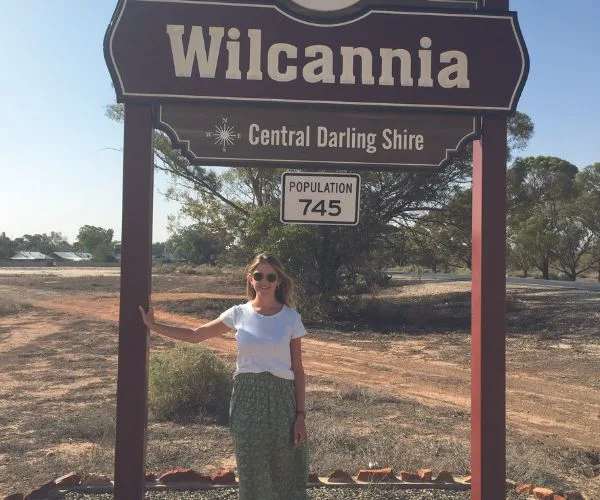
When Sarah first arrived (Image: supplied)
The nearest shops were two hours away and the thought of not being able to duck into Woolies at night was daunting.
But living in a small, two-bedroom house without internet or a phone connection also had its rewards.
I enjoyed the silence, welcomed Billie, a kelpie collie-cross pup into my life, and looked forward to each working day.
I taught Year Six, which consisted of just 10 students – a lot smaller than the classes of 30 I was used to.
I also taught singing to the wider school community.
Setting up my classroom with safe withdrawal spaces – a bright-coloured tent and cushions where students could go to feel safe, sleep or have time away from conflict, I made a motto for our class: Mistakes are expected, respected, inspected and corrected.
The students and I bonded so well that by the end of week-one, I extended my contract to a full year!
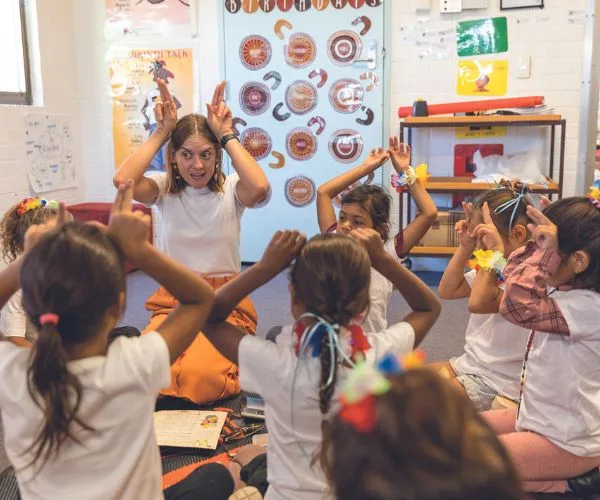
Sarah with the students (Photo by Gerrit Fokkema)
When it came to learning about the history of Wilcannia, we used historical resources to study the white and black history and the students, who were all Aboriginal, had a chance to form their own opinions and share them.
In discussions around Captain Cook, students used some strong language about white people.
Rather than tell them off, I asked questions so they could think about the meaning of their words.
“We need to work together to learn about real history, so that we can work to make things right and also make sure nothing like that happens again,” I said.
One of the boys piped up.
“Yeah,” he began, “but Miss, you might look white, but you’re black on the inside. You’re Wilcannia mob now.”
As much as I could, I tried to become part of this place.
School excursions were a real highlight.
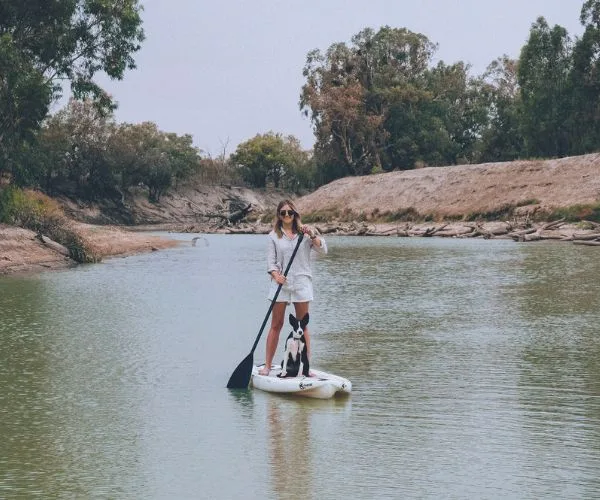
Exploring Wilcannia (Image: supplied)
I arranged a trip for 40 students to Peery Lake, a fresh water lake on the Paroo River, north of Wilcannia.
Crammed into three buses, the students were thrilled at seeing the lake filled with water for the first time in their lives.
The water sparkled in the sunlight as we all clambered over saltbrush and shrubs to get there.
“Miss! Can we go in?” the kids called.
“Go for it,” I replied. “Only up to your shins though.”
Watching them play and experience this freedom made me realise that a school should be a place where joy like this was always shared.
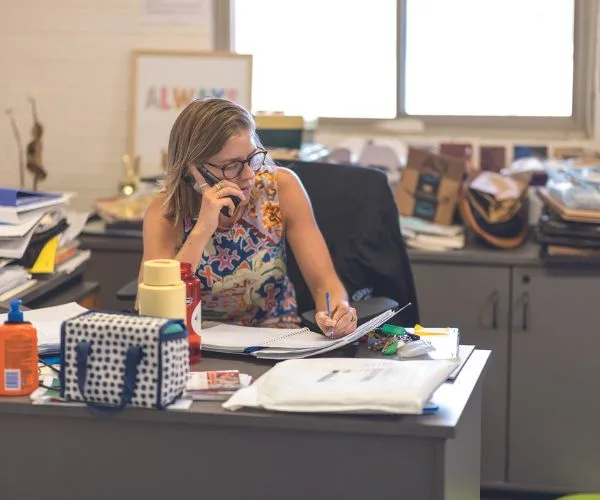
At school (Photo by Gerrit Fokkema)
Helping with the town’s annual kids’ fashion parade was another highlight.
The event, which is held at the town hall, promotes messages of self-empowerment and the prevention of domestic and family violence.
But one of the biggest challenges was the COVID pandemic, which saw a move to online learning.
I really missed the face-to-face connection that teaching both my classes and singing offered.
So during this time, I got students to film videos of themselves singing From Little Things Big Things Grow by Carmody and Paul Kelly and in 2020 I was awarded the ARIA Music Teacher of the Year Award.
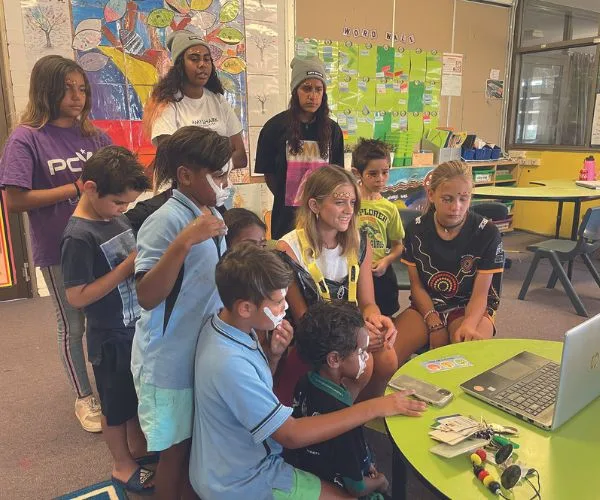
Watching the ARIAS with students (Photo by Benita Tatt)
I was shocked!
This sort of recognition was such an honour.
Now, three years later, I’m still in Wilcannia and am currently deputy principal.
With so many stories to share, I’ve published a memoir, Big Things Grow, (Allen & Unwin) about my time spent here as a teacher.
People always ask me how long I plan to stay in Wilcannia, and I tell them: “Another year.”
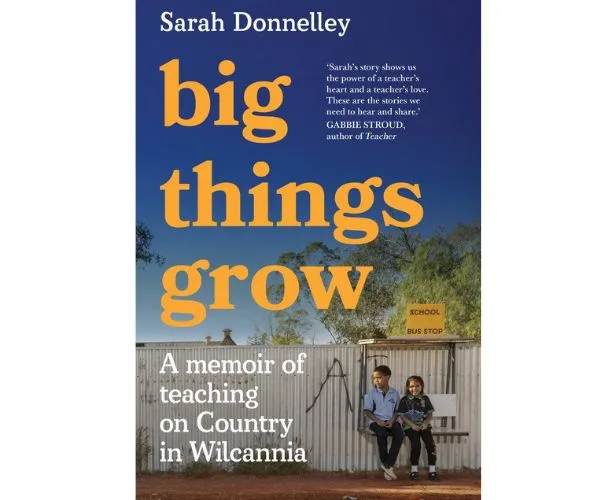
Sarah’s memoir
“You said that a year ago!” they laugh.
But the truth is working here has been a privilege.
I love being part of the village that’s raising a child, and that privilege makes every minute worthwhile.
I don’t know how many people can say that about their job!
